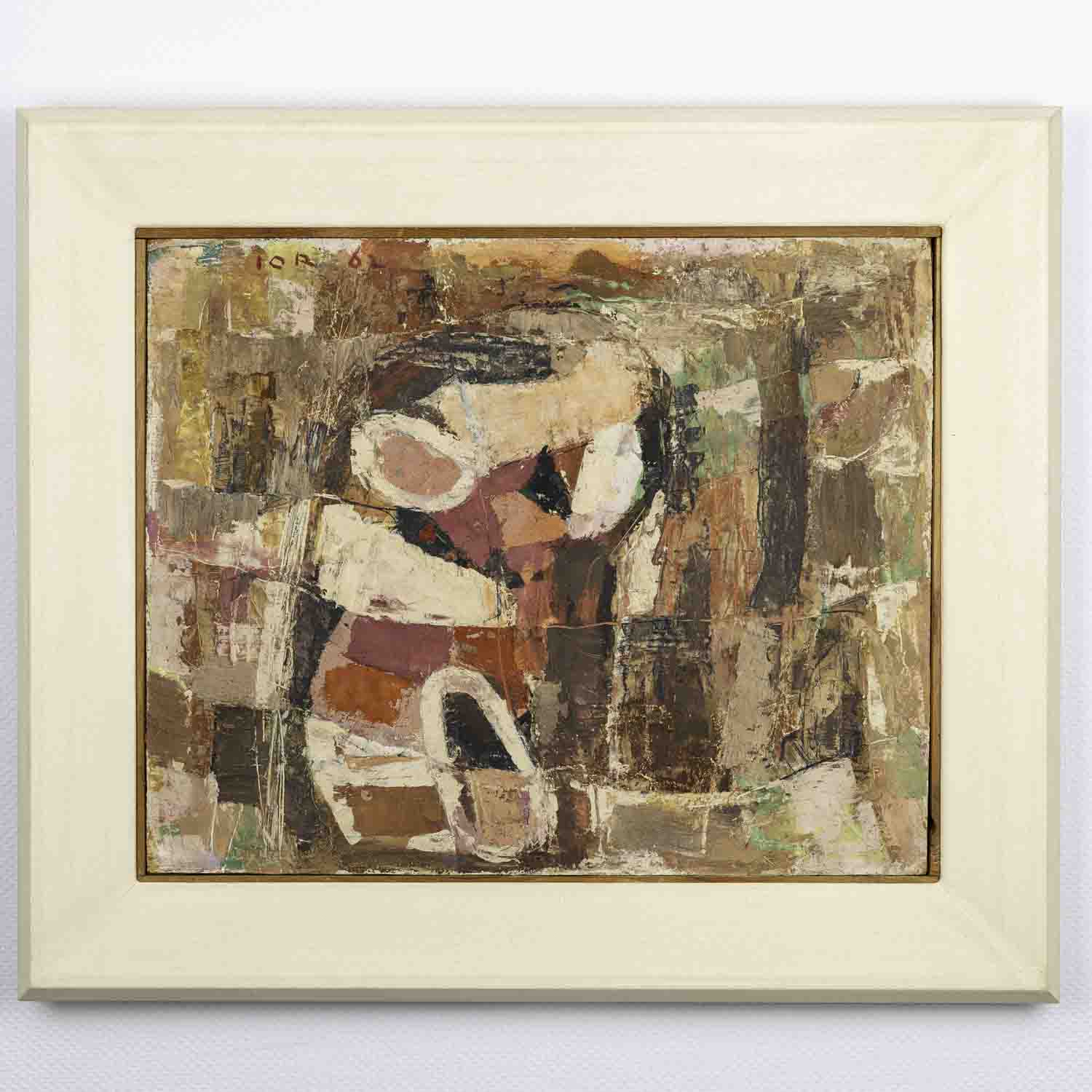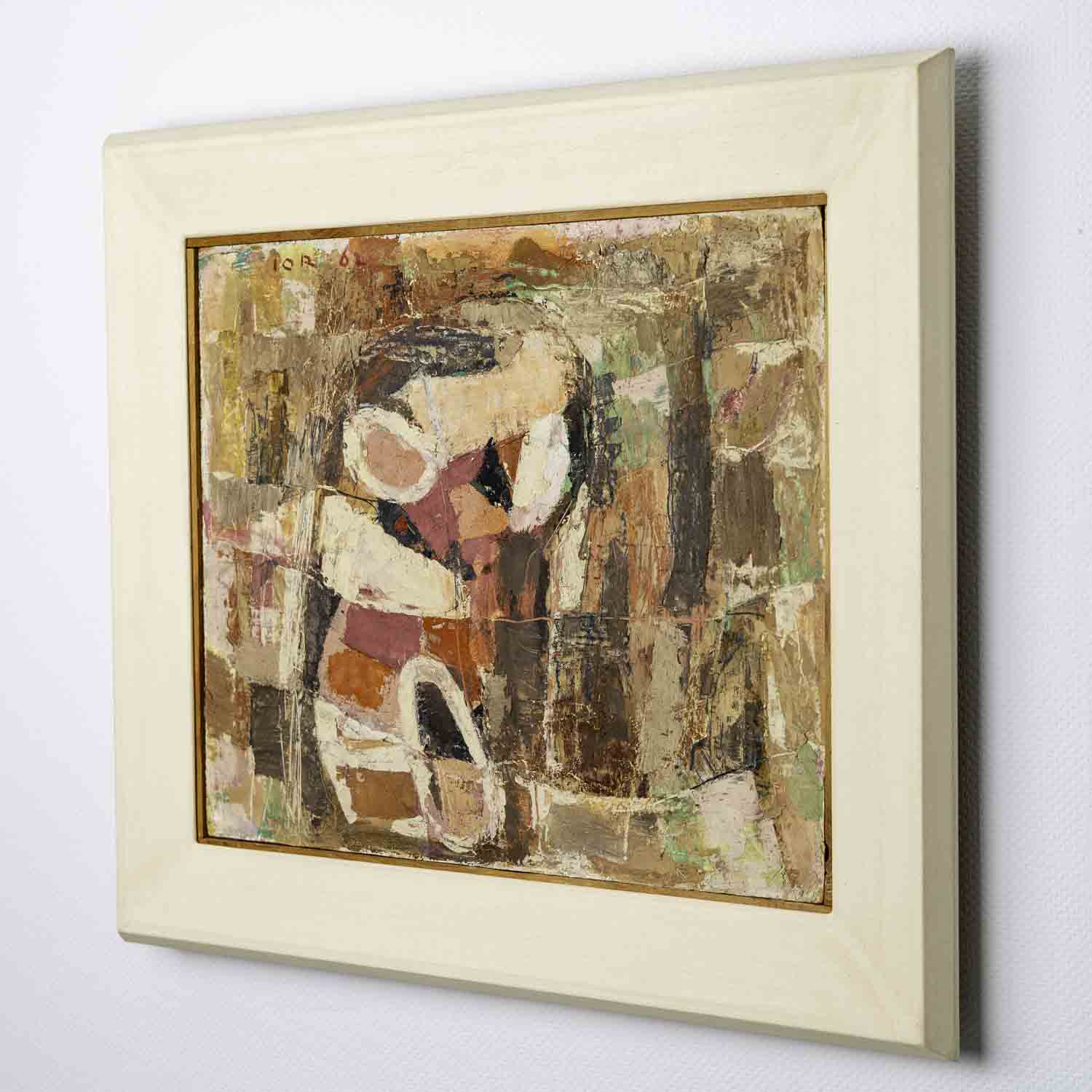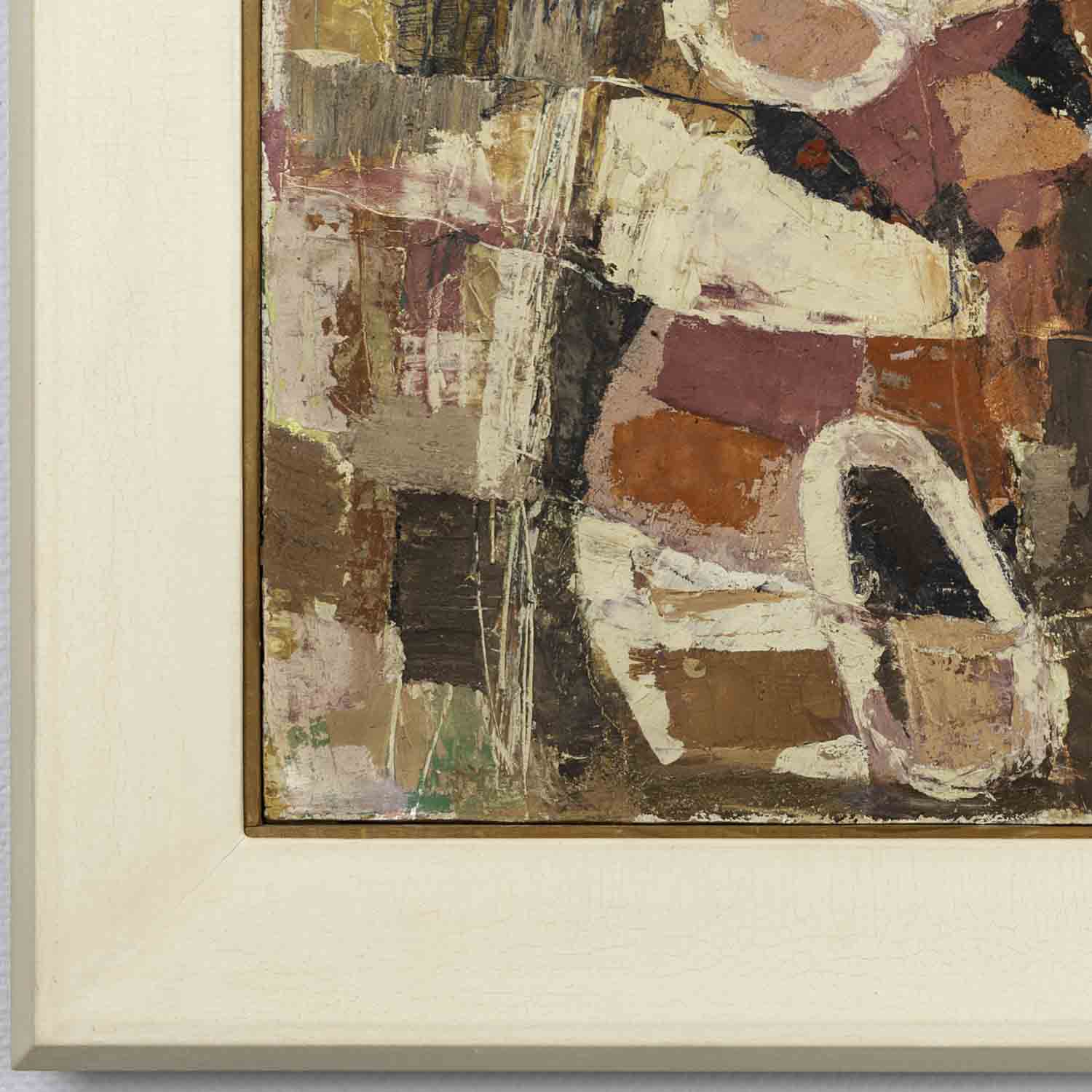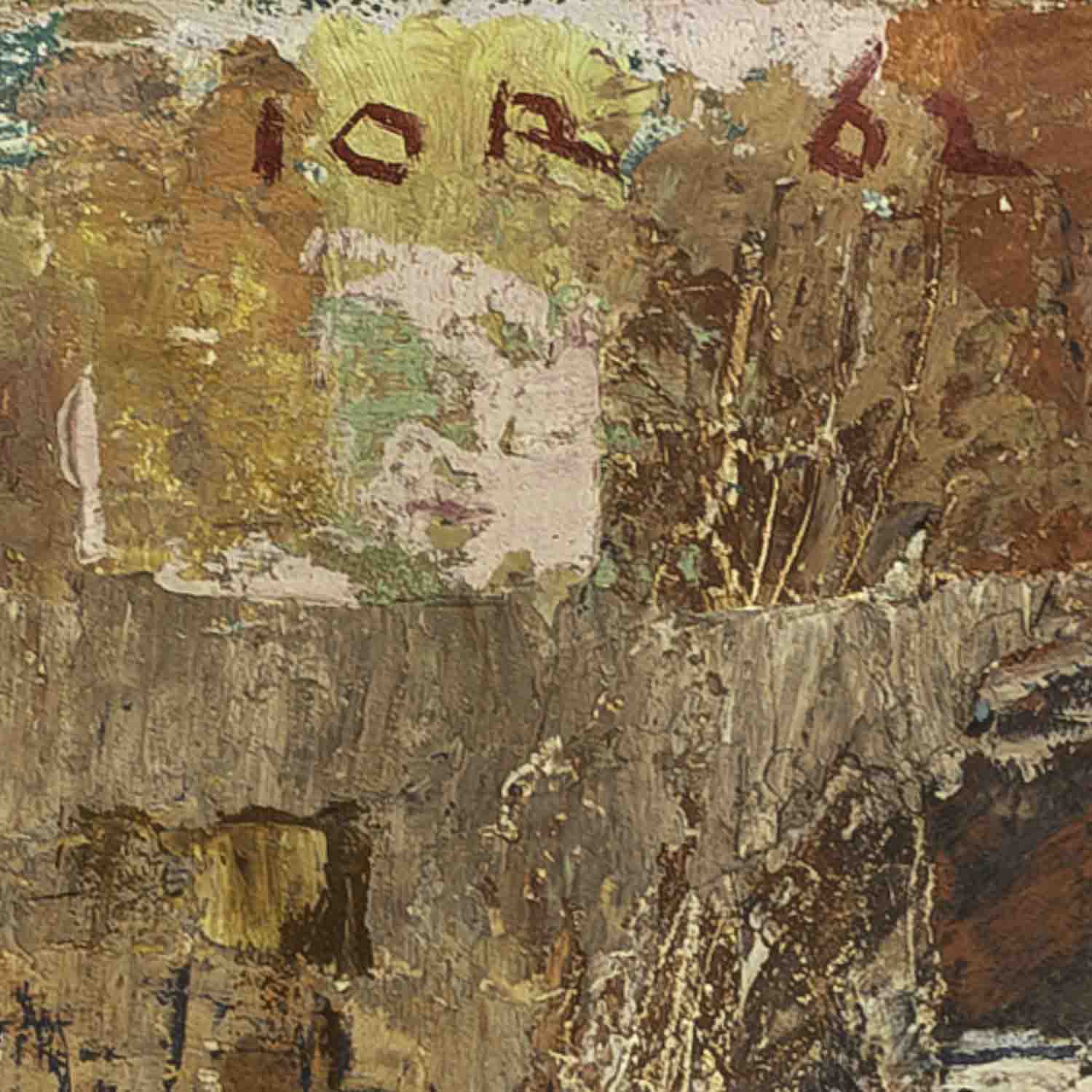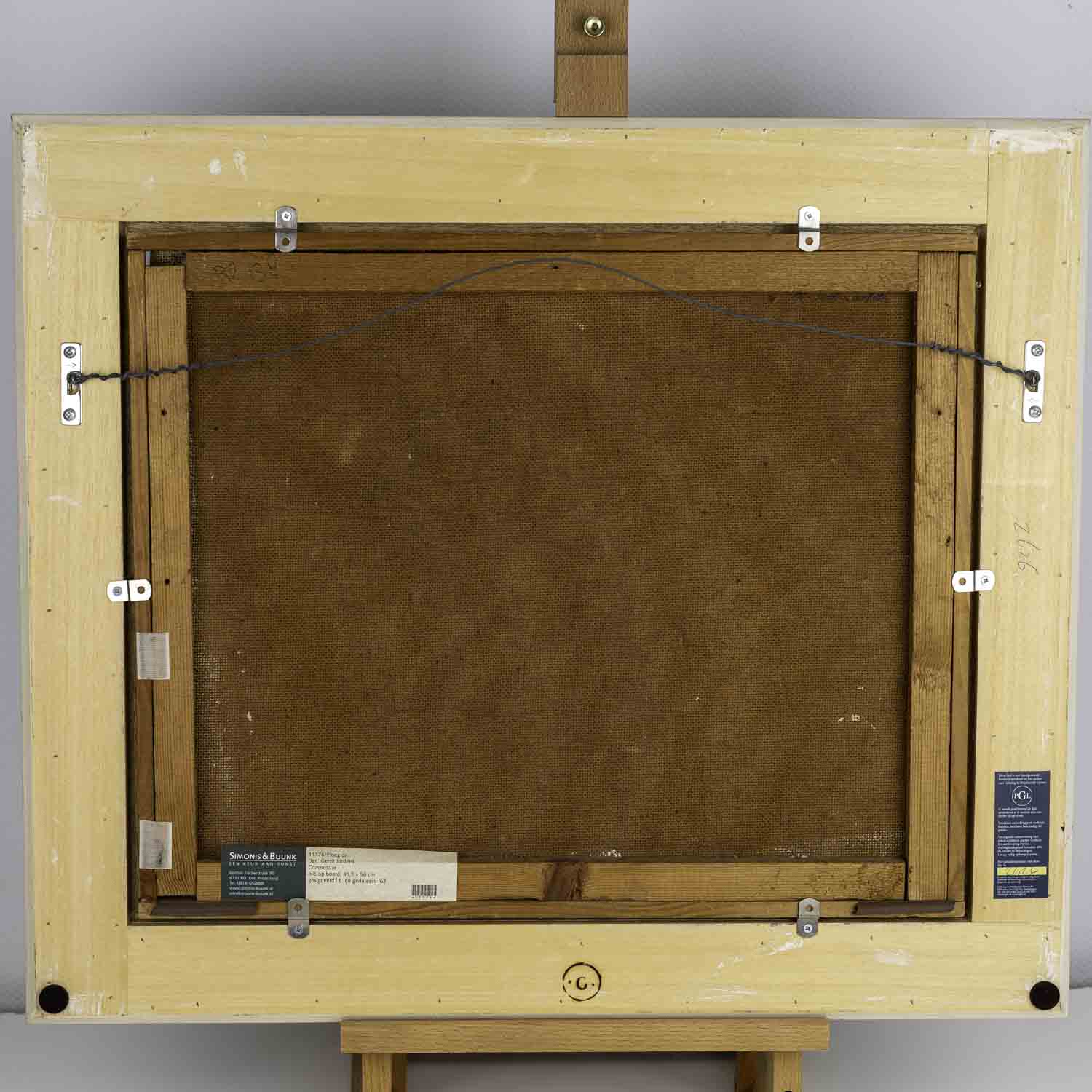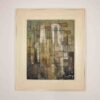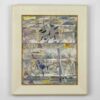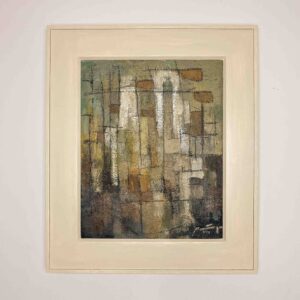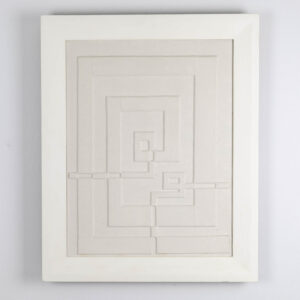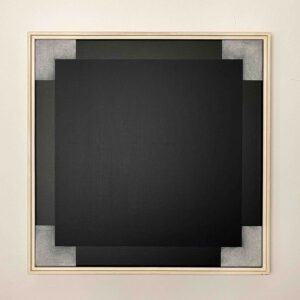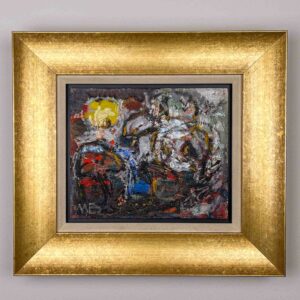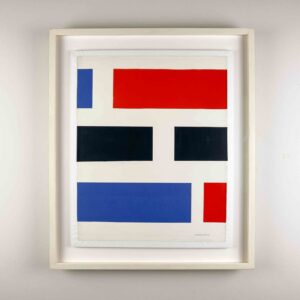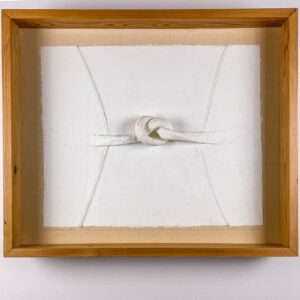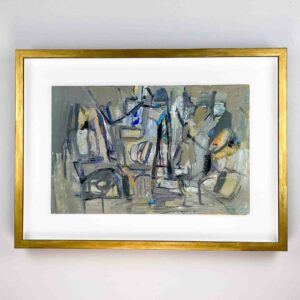| Signed | Signed and dated "Jor '62) front, top, left |
|---|---|
| Condition | Good original condition, professionally framed |
| Provenance | Private collection, Leiden, The Netherlands |
| Dimensions | Artwork Frame |
Jan Gerrit Jordens – “Compositie”, 1962 – oil on board
Price upon Request
Availability: 1 in stock
An original abstract painting on board. Painted in 1962 by Dutch artist Jan Gerrit Jordens. Signed and dated, professionally framed.
About Jan Gerrit Jordens
Jan Gerrit Jordens (Wageningen 1883 – Groningen 1962) was a Dutch painter, graphic artist, and art educator known for his contributions to the Groningen art scene.
Jordens was born on January 5, 1883, in Wageningen, Netherlands. He studied at the Royal Academy of Art in The Hague and later at the National Normal School for Drawing Teachers in Amsterdam. These institutions provided him with a strong artistic and educational background.
In 1907, Jordens began teaching drawing at the Rijks HBS in Warffum, eventually becoming director of the evening drawing school. In 1916, he moved to Groningen, where he taught at the Rijks HBS and later at the Gemeentelijke HBS. Influenced by Austrian educators Franz Cizek and Richard Rothe, Jordens encouraged creative freedom in his students and wrote instructional books on linoleum cutting. His methods gained recognition beyond the Netherlands.
Shortly after its founding in 1918, Jordens joined De Ploeg, a Groningen-based artists’ collective. His ties with artists in Amsterdam and membership in groups such as St. Lucas and The Independents made him an important figure in De Ploeg. Despite his teaching responsibilities, he played an active role in the group, holding positions like vice-chairman, chairman, and secretary.
Jordens’ artistic style evolved throughout his career. Around 1915, he painted in a late Impressionist style, but by 1919, his work had taken on more expressive colors, influenced by expressionists such as Henri Le Fauconnier and Piet van Wijngaerdt. In the 1930s, he experimented with Cubism, though his approach remained emotional rather than strictly geometric. After World War II, he moved toward abstract expressionism, particularly in his watercolor landscapes, many of which were inspired by Schiermonnikoog.
After retiring from teaching in 1948, Jordens focused entirely on painting. He co-founded the artist collective Het Narrenschip in 1950 and later joined the NU group in 1960. He exhibited widely, including at the Stedelijk Museum in Amsterdam and the Groninger Museum, which held a joint exhibition of his work and that of Jan van der Zee in 1958. Critics often compared his work to music, emphasizing its improvisational qualities.
Jordens passed away on May 12, 1962, in Groningen. His contributions to Dutch modern art and his influence as an art educator remain significant today.
Make an offer
You may also like…
-
Jaap Nanninga – Abstract Composition, 1953 – oil on canvas, framed
Price upon request -
Pieter de Haard – “Spiralen II”, 1957 – mixed media on board
Price upon Request -
Geert van Fastenhout – “Painting no. 5”, 1988 – oil on linnen, framed
Price upon Request


